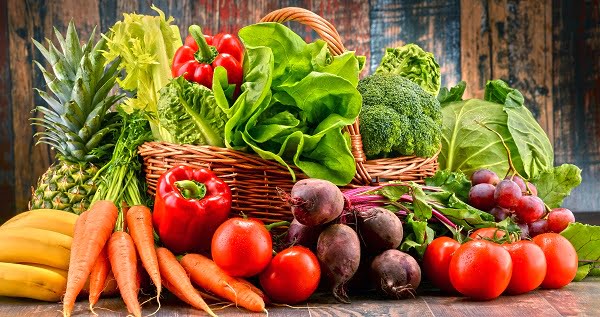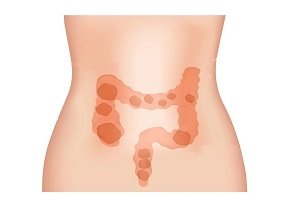Home Remedies for Constipation
- Updated on: Jul 15, 2024
- 5 min Read
By
- Published on Oct 3, 2019


Foods and home remedies that can benefit you
Constipation can leave anyone feeling bloated, lazy and all-around uncomfortable. There are some natural foods that help in digestion, and make bowel movement easy and regular. These foods are healthy and rich in fiber and have other positive benefits too other than their benefit on your digestive system.
What you should eat in constipation?
The foods that help relieve constipation are:
Beans
Beans have the highest amount of fiber in them. 1 cup of beans has more than 10 grams of fiber. They contain a mixture of soluble and insoluble fiber. These two types of fibers help the food keep moving through the intestines and relieve constipation.
There are a variety of beans which can be consumed including:
- baked beans
- black-eyed peas
- garbanzo beans
- lima beans
- pinto beans
- kidney beans
These beans can be eaten by adding them to salads, soups, casseroles, or pasta.
Kiwi
Kiwi is the fruit that most of the doctors recommend for constipation relief. One medium kiwi has about 2.5 grams of fiber. In addition, it also contains lots of vitamins and nutrients that are important for good health, including the intestines.
A kiwi is a kind of berry and its seeds are edible. The peel of the fruit can also be eaten, although most people prefer to eat just the flesh. Eating kiwi promotes regular bowel movements and prevents constipation.
Sweet potatoes
Sweet potato has a high fiber content which can help get things moving along. One medium baked sweet potato with skin has 3.8 grams of fiber in it. Sweet potatoes help prevent and relieve constipation. Most of the fiber content of sweet potato is contained in its skin, so eating it with skin gives bigger benefits.
Regular baked potatoes are also a good source of fiber. A small baked potato has 3 grams of fiber. Eating the potato with its skin is a great idea for treating and preventing constipation.
Popcorn
Air-popped popcorn is a good choice for a high-fiber snack. 3 cups of air popped popcorns contain 3.5 g fiber that can help provide relief from constipation.
Popcorn laden with butter is not a safe option as the high-fat content contains lots of calories, and the fat can cause constipation too.
Nuts and seeds
Nuts and seeds both are a good source of fiber. Nuts actually contain more fiber than fresh fruit per serving. Almonds, pecans and walnuts have the maximum fiber content among all nuts.
- 1 ounce of almonds (about 23 nuts) contains 3.5 g fiber
- 1 cup of raisins has 7 g fiber
- 1 ounce of pecans (about 19 halves) contains 2.7 g fiber
- 1 ounce of walnuts (14 halves) has 1.9 g fiber
- 1 tablespoon of sesame seeds contains 1.1 g fiber
- 1 ounce of pumpkin seeds (about 85 seeds) offers 5 g fiber.
Along with fiber, nuts and seeds are also high in fat content, so the portion should be small. Raw or dry roasted nuts and seeds are preferable than the ones roasted in oil. Nuts and seeds can be added to cereal.
Whole grain bread
Whole grains contain lots of fiber, which is good not only for the bowel but also for the heart. Whole grain rye bread is beneficial than wheat bread. It is also a good option for relieving constipation instead of using laxatives.
Whole rye bread contains arabinoxylan (the main component of dietary fiber in rye) that helps keep food moving through the intestine. Another good source of fiber and nutrients is Ezekiel bread. It is made of sprouted whole grains and legumes which are very helpful in relieving constipation.
Pears, plums, and apples
Pears have always been used as a constipation remedy. They are an excellent source of fiber. Pears contain sorbitol which acts as a laxative and help loosen up the stools. An average pear provides 6 grams of fiber which help to regulate the digestive system. Pears also are great for treating constipation in babies and infants.
Plums are a high source of sorbitol and are very helpful in preventing constipation.
Apples are the quintessential fruit that every person needs in their diet for a healthy body. One average-sized apple contains about 4.4 grams of fiber and it also contains sorbitol which increases bowel movements.
Berries
Raspberries, blackberries, blueberries and strawberries all are a rich source of fiber and are easy to snack on. A half cup of raspberries contains 4 g fiber to help relieve constipation.
Blackberries contain maximum content of fiber among all the berries. It contains eight grams of fiber per cup which is twice the amount of other popular berries. And blackberries are one of the most antioxidant-packed fruits.
Berries can be eaten alone as a fruit or snack or can be combined with salads and puree or can be consumed as shakes.
Flaxseed
Flaxseed is a great source of fiber. It also contains antioxidants and omega-3 fatty acids. Just one tablespoon of both brown and golden flax seed has 2.8 g fiber. Most of the fiber is found in the husk of the flaxseed, and ground flax seed is generally recommended for easier absorption of the fiber.
They can be consumed after adding them to smoothies, salads, or oatmeal.
Broccoli
A half cup of cooked broccoli contains 2.8 grams of fiber. It is also a good source of vitamin C. It can be eaten raw as a snack with a low-fat dip.
Prunes
Prunes are also known as dried plums. They are high in insoluble fiber and the natural laxative sorbitol, which can help to relieve constipation. They help stimulate intestinal muscles to push waste through the large intestine. Prunes juice is also helpful at relieving constipation in babies.
Oranges
Oranges are another fibrous fruit that can help move things along. Almost all citrus fruits including oranges, tangerines, and grapefruit are great because of the high fiber content.
The fiber stimulates the growth of good colon flora and subsequently increases fecal mass. One large orange offers 4 grams of fiber.
Oatmeal
Oatmeal is the best source of insoluble fiber. A half-cup of oats contains 4 g of fiber. Insoluble fiber is good for gut health. It adds mass to the stool and helps food pass more quickly and easily through the stomach and intestines, thereby treating constipation.
Oats even protects from colorectal cancer.
Aloe vera juice
Aloe was traditionally included in laxative products. It is made from the aloe vera plant. It acts as natural laxatives for people suffering from constipation.
Spinach
One cup of cooked spinach offers 4 grams of fiber. It is also a great source of magnesium. Magnesium is important for energy metabolism and it clears the intestine and improves bowel movement.
Brown rice
One cup of brown rice contains nearly four grams of fiber, making it a great food to eat in constipation. It is found that brown rice decreased the chances of getting constipation by 47 percent than white rice.
Avocado
Avocados are high in magnesium content. They help draw moisture into the digestive tract to soften stool and increase the flow.
If you do not feel relief with home remedies, you should consult your doctor for proper medical treatment. Read about the treatment of constipation.











